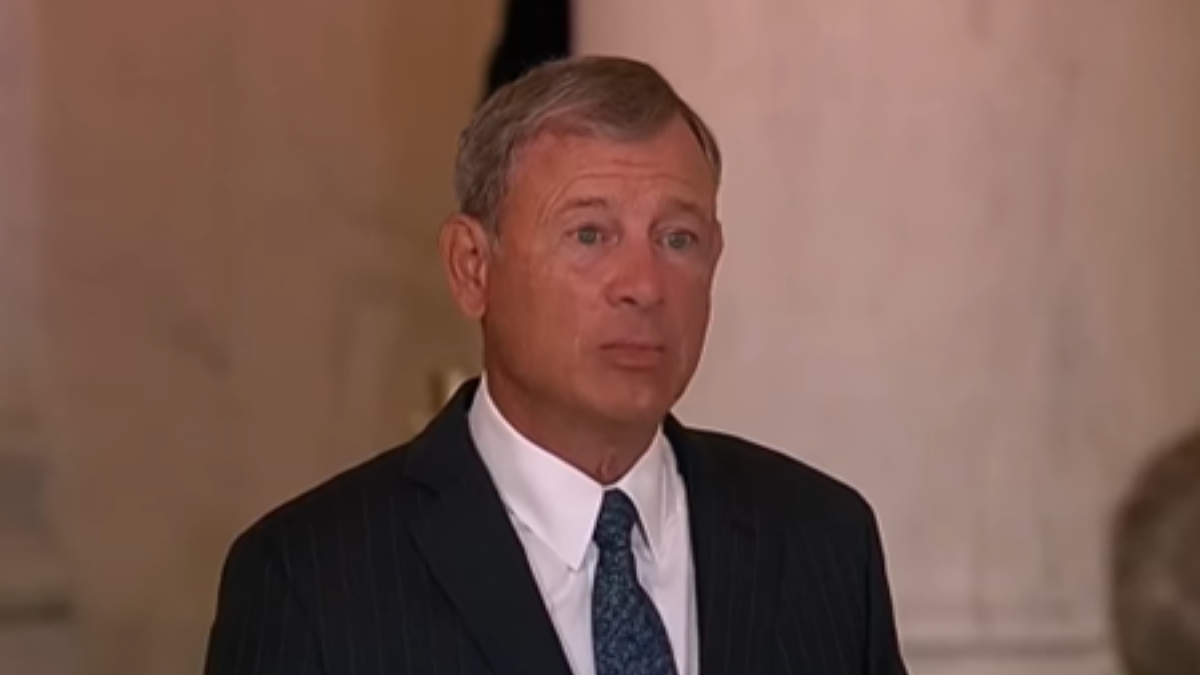In a matter of hours, Washington D.C. and the political world have erupted in chaos. On Monday evening, Politico published a report of an alleged leaked draft of a majority U.S. Supreme Court decision that would strike down Roe v. Wade, the 1973 court case that federally legalized abortion in the United States.
Writing for the majority in Dobbs v. Jackson Women’s Health Organization, Justice Samuel Alito’s alleged draft opinion describes the irrationality of the 1973 ruling, reportedly stating that “Roe was egregiously wrong from the start.”
“We hold that Roe and Casey must be overruled,” writes Alito. “It is time to heed the Constitution and return the issue of abortion to the people’s elected representatives.”
According to the bombshell report, the leak came from a “person familiar with the court’s deliberations,” with the source also claiming that “four of the other Republican-appointed justices – Clarence Thomas, Neil Gorsuch, Brett Kavanaugh and Amy Coney Barrett – had voted with Alito in the conference held among the justices after hearing oral arguments in December, and that line-up remains unchanged as of this week.”
Although the identity of the leaker currently remains unclear, this person’s intended goal is fairly obvious. In disseminating the alleged Dobbs opinion before its scheduled release, the leaker is seeking to generate a firestorm of vitriol from left-wing activists directed at the court’s Republican-appointed justices, in the hopes that some will switch their position before the final opinion is released.
While such tactics are despicable and completely destroy the long-held and respected inner workings of the high court, it’s not surprising given that previous public pressure campaigns have worked in swaying justices in other highly political cases, with Chief Justice John Roberts being the most notable.
In the 2012 NFIB v. Sebelius decision on Obamacare, for instance, Roberts joined the leftists on the court to uphold the Affordable Care Act (ACA), with the chief justice ruling that the federal government has the power to force citizens to purchase health insurance under its power to tax.
“The Affordable Care Act is constitutional in part and unconstitutional in part. The individual mandate cannot be upheld as an exercise of Congress’s power under the Commerce Clause,” Roberts wrote. “In this case, however, it is reasonable to construe what Congress has done as increasing taxes on those who have a certain amount of income, but choose to go without health insurance. Such legislation is within Congress’s power to tax.”
The faulty legal reasoning was not Roberts’ original position on the matter. According to “The Chief,” a book written by longtime SCOTUS reporter Joan Biskupic, Roberts initially had sided with his conservative colleagues in striking down Obamacare, “on the grounds that it went beyond Congress’s power to regulate interstate commerce.”
Fears over potential public blowback for such a decision, however, prompted Roberts to operate as a politician, with Biskupic noting how “he felt ‘torn between his heart and his head'” over striking down the ACA.
“After trying unsuccessfully to find a middle way with [Justice Anthony] Kennedy, who was ‘unusually firm’ and even ‘put off’ by the courtship, Roberts turned to the Court’s two moderate liberals, Stephen Breyer and Elena Kagan,” a review of the book published in The Atlantic reads. “The threesome negotiated a compromise decision that upheld the ACA’s individual mandate under Congress’s taxing power, while striking down the Medicaid expansion.”
The book seemingly confirms reporting from CBS News’ Jan Crawford, who in her 2012 story of Roberts’ Obamacare flip-flop noted how the chief justice “pays attention to media coverage” and “is sensitive to how the court is perceived by the public.”
While Roberts may have thought his last-minute switch to save Obamacare was a bid to maintain peace in politics, it actually did the exact opposite. Roberts’ spinelessness in the 2012 ACA decision was not only unconstitutional garbage, but it also revealed to the neo-Marxist left that the court can be influenced in high-profile cases if there’s enough public outcry waiting in the wings.
With the leak of the purported Dobbs opinion now public, Roberts’ actions have placed a target on the backs of his conservative colleagues, with threats of violence and harassment from leftists on the way. Whether he wants to believe it or not, his decision to play politician has jeopardized the independence of the court for years to come.









